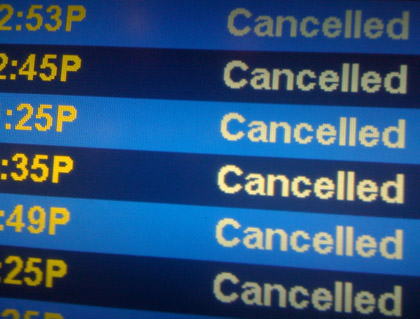 Rule 240 was a Civil Aeronautics Board rule which was eliminated during deregulation in the late 70s. It did require rebooking on other carriers, something airlines do not wish to do. Why would you wish to give your money to your competitors?
Rule 240 was a Civil Aeronautics Board rule which was eliminated during deregulation in the late 70s. It did require rebooking on other carriers, something airlines do not wish to do. Why would you wish to give your money to your competitors?
After deregulation ended, Rule 240 was still a term used, but it is more of a phrase than a rule. There is an actual rule, IATA 735D, which states that within 24 hours of a disruption, another IATA carrier(pretty much all of them) must accept passengers. That governs whether or not an airline must accept another airline’s passengers, not whether or not the first airline must offer them.
Rule 240 also only governed U.S. carriers, whereas the IATA rule governs all participating carriers. So, why are the carrier’s opposed to putting you on another airline? Simply, the money.
Not only did they have to cancel a plane, which results in a loss, they’ve lost the fares from that flight as well? If they can squeeze you onto another aircraft…that is a little money regained.
Then we get back to the IATA Rule…what does Airline A pay Airline B for the seat…which we mentioned they must offer. According to the rule, they get what the original airline would have received for the flight. And if the two airlines cannot agree on what the applicable fare was, it could take a while to get it. And day of departure, the fare is significantly higher than what someone who booked months ago paid.
But with airlines better managing their empty seats, loads up, capacities controlled, there are fewer seats to give and passengers must wait longer to get rebooked in a disruption.
Passenger advocacy groups are trying to convince the DOT to require airlines to transfer their passengers to another airline in a cancellation.
So, a storm comes in…Airline A cancels flights, Airline B operates, and is forced to accept passengers from other airlines at whatever price the other airline sold…think of the potential for abuse in competition.
We certainly think the government should step in, but to put reasonable rules. However, the government’s tarmac delay rules a few years ago led to airlines proactively cancelling flights instead of trying to operate them, so they’ve, while trying to help with one problem, made another worse.
Also, who gets to go on the other airline? If a plane full of one hundred plus people cancels…the likelihood the other airline will only have a few seats? Is it first come first served? Who paid the most?
We’d like to suggest that an airline be mandated to look for other options if the person’s delay would exceed 24 hours if limited to flights operated by them. But these things have to be fair on both sides. You also can measure by the duration of cessation of commercial operations at an airport as opposed to the actions of any one carrier.
Until 2005, the Delta Shuttle promised that if a plane was full, they’d bring out a second plane for the overflow passengers. Having a multi-million dollar object and its crew sitting around is not really a viable option in this day and age.
But if not that, what is? What do you think the solution is?